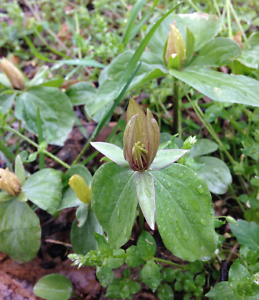For Tennessee writers, our environment's fate hinges on unearthing the truth about where we stand
I am as native a Tennessean as I am a writer. In me, the origin stories of these two identities are inseparably entwined. I could not hope to parse them if I tried. From the start, the lands of my native state have informed my work as strongly as any other force that I've encountered.

On the page, I've composed version after version of the dark woods that surround the abandoned grounds of a Hickman County charcoal plant — land soon to become a Superfund site — where my grandfather once led me by my small hand, exploring the ruins of his work life. Or the top of a wooded ridge in Cheatham County, where for a decade I was nurtured and cooled by a heat shield created by the forest, until that protective respite all but vanished due to nearby logging.
When I look across Tennessee's literary ecosystem, I see how many of our writers feel compelled to write about their relationship to the land. Some have intertwined their literary vision with an environmental mission. Others have devoted their work to excavating truths about our history that have lain buried for too long.
We must open ourselves up to new ways of comprehending and relating to the natural world we inhabit — to the remarkable biodiversity of our ecosystem and to the barrage of escalating threats it now faces. In an era of collective trauma and aggressive conflict over basic agreements about what constitutes fact, the willingness to commit to this path does take real vulnerability.
So does art-making, as all writers know.
What does it mean for writers to be called to write about our land — our place of origin, our adopted homes, or our whole imperiled planet — during a time of continuous, overlapping crises? How do we prioritize our concerns? How can we endure the overload of troubling input and alchemize it all into fresh, compelling literary form?
Seamus Heaney, whose Northern Ireland origins provided him a bottomless reservoir of rich but fraught material for his poems, once insisted, "What matters is the shape-making impulse, the emergence and convergence of an excitement into a wholeness."
If we can withstand our own vulnerability in these times, then this shape-making impulse can light our way. Many of our state's writers have been following their own, opening up new ways for us to experience the natural world's incomprehensible complexity and interconnectivity.
What follows is merely a glimpse of the diverse landscape of writers in Tennessee engaging the subject of the environment in thoughtful or unexpected ways. Through one innovation of form after another, these writers have devoted their work to breaking the spells of complacency and ignorance that threaten our future. They have set out to learn, like never before, everything that we can know about the ground on which we stand…
No comments:
Post a Comment